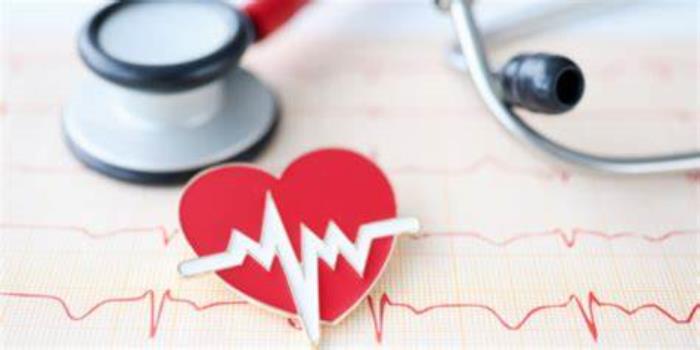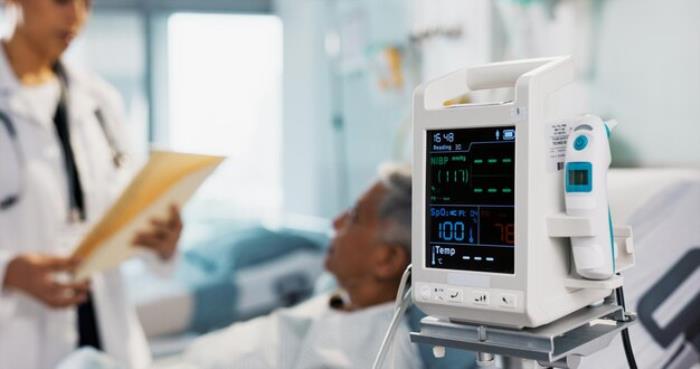Cardiac rehabilitation is a critical component of recovery and long-term heart health for patients who undergo Automated Implantable Cardioverter Defibrillator (AICD) implantation. This structured program combines medical evaluation, supervised exercise, education on heart-healthy living, and emotional support to help patients regain their quality of life. By addressing both physical and psychological aspects of recovery, cardiac rehabilitation empowers patients to live with confidence and reduce the risk of future cardiac events.
Medical disclaimer: This content is for general awareness and does not replace a doctor’s consultation. For diagnosis or treatment decisions, consult a qualified specialist.
What Is Cardiac Rehabilitation?
Cardiac rehabilitation is a medically supervised program designed to improve cardiovascular health after events such as heart surgeries or AICD implantation. It involves personalized exercise plans, dietary guidance, mental health counseling, and risk factor management to ensure optimal recovery. The program is tailored to each patient’s specific needs and capabilities, ensuring safe progression toward better heart health.
Why Cardiac Rehabilitation Is Important for AICD Patients
AICD patients often face unique challenges, such as adjusting to the presence of the device, managing underlying heart conditions, and overcoming the fear of shocks. Cardiac rehabilitation addresses these concerns by providing a safe and supportive environment for recovery. It helps improve physical fitness, enhances mental well-being, and equips patients with tools to manage their heart condition effectively.

Benefits of Cardiac Rehabilitation Post-AICD Surgery
Participating in cardiac rehabilitation offers numerous benefits, including improved heart function, increased physical endurance, and reduced symptoms of fatigue or breathlessness. It also lowers the likelihood of hospital readmissions and enhances the patient’s understanding of their condition. Additionally, the program promotes better mental health by alleviating anxiety and depression commonly associated with heart conditions and device implantation.
Phases of Cardiac Rehabilitation: A Step-by-Step Guide
Cardiac rehabilitation is typically divided into three phases. Phase I begins in the hospital after surgery, focusing on light activity and education. Phase II occurs in an outpatient setting, where patients engage in monitored exercise sessions and receive lifestyle counseling. Phase III is a long-term maintenance phase, encouraging patients to continue healthy habits independently while receiving periodic medical supervision.
Physical Activity Guidelines for AICD Patients
Exercise plays a pivotal role in cardiac rehabilitation, but it must be approached cautiously for AICD patients. Activities are carefully selected to avoid excessive strain while improving cardiovascular fitness. Low-impact exercises such as walking, cycling, and swimming are commonly recommended. Patients are advised to avoid high-intensity or contact sports that may risk device displacement or lead to arrhythmias.
Monitoring Heart Health During Rehabilitation
Continuous monitoring is essential during cardiac rehabilitation to ensure patient safety. AICD patients undergo regular assessments of heart rate, rhythm, and overall cardiac function. Advanced monitoring techniques during exercise sessions help detect any abnormalities, allowing for timely intervention. This close supervision ensures that rehabilitation is both effective and safe, fostering confidence in patients as they rebuild their strength and health.
Psychological Support: Coping with an AICD Implant
Receiving an Automated Implantable Cardioverter Defibrillator (AICD) can bring emotional challenges such as anxiety, depression, or fear of device shocks. Psychological support, including counseling or support groups, helps patients adapt to life with an AICD, manage their emotions, and regain confidence in their daily activities.
Dietary Recommendations in Cardiac Rehabilitation
A heart-healthy diet is a vital component of cardiac rehabilitation for AICD patients. Emphasizing fruits, vegetables, whole grains, lean proteins, and low-sodium options supports heart health and helps prevent complications. Limiting processed foods and saturated fats is equally important to manage cholesterol and blood pressure.
Managing Comorbid Conditions During Rehabilitation
Many AICD patients have comorbidities such as diabetes, hypertension, or obesity. Cardiac rehabilitation programs are tailored to address these conditions alongside heart health, integrating strategies like medication adjustments, lifestyle changes, and monitoring to ensure comprehensive care.

Addressing Fears and Concerns About Physical Activity
Fear of triggering a device shock may cause some patients to avoid physical activity. Healthcare providers play a crucial role in addressing these concerns, offering reassurance, and creating customized exercise plans that are safe and effective for AICD patients.
The Role of Healthcare Providers in Rehabilitation Success
Healthcare providers, including cardiologists, physical therapists, and dietitians, collaborate to guide patients through cardiac rehabilitation. Their expertise ensures patients receive personalized care, adhere to rehabilitation protocols, and achieve optimal recovery outcomes.
Customized Exercise Plans for AICD Patients
Exercise plans in cardiac rehabilitation are designed to balance safety and effectiveness. Activities are tailored to the patient’s physical condition, medical history, and AICD settings, with gradual progression to improve cardiovascular fitness and overall well-being.
How Cardiac Rehabilitation Reduces Complications
Cardiac rehabilitation lowers the risk of complications such as arrhythmias, device malfunctions, and heart failure. By improving physical fitness, managing risk factors, and educating patients about heart health, these programs enhance long-term outcomes.
Importance of Regular Follow-Up Appointments
Follow-up appointments allow healthcare providers to monitor the patient’s progress, assess the AICD’s functionality, and address any concerns. Regular evaluations ensure that the rehabilitation plan remains effective and aligned with the patient’s needs.
Long-Term Lifestyle Changes to Support Heart Health
Sustainable lifestyle changes, such as maintaining a balanced diet, regular exercise, stress management, and avoiding smoking, are key to supporting heart health post-rehabilitation. These habits also help prevent further cardiac issues and reduce dependency on medical interventions.
Technology in Cardiac Rehabilitation Programs
Innovations like remote monitoring, mobile health apps, and virtual rehabilitation programs make cardiac rehabilitation more accessible. These technologies allow patients to stay engaged with their care plans and communicate with their healthcare team conveniently.
Barriers to Cardiac Rehabilitation and How to Overcome Them
Common barriers, such as financial constraints, lack of access to facilities, or low motivation, can hinder participation in rehabilitation. Addressing these issues through financial assistance programs, telehealth options, and motivational counseling ensures more patients benefit from these programs.
Success Stories: Improving Quality of Life After AICD Implantation
Many patients report significant improvements in their quality of life after completing cardiac rehabilitation. Enhanced physical fitness, emotional well-being, and confidence in managing their health are among the benefits cited by AICD recipients.
Understanding the Risks of Infection Post AICD Surgery
Learn about the risks of infection after AICD implantation. Infection is a potential complication of any surgery, including AICD implantation. This article delves into the factors that increase infection risk, how to spot signs of infection early, and the steps to take to minimize these risks to ensure a smooth recovery.
Role of Medications Alongside AICD Therapy
Explore how medications complement AICD therapy in managing heart rhythm disorders. While an Automated Implantable Cardioverter Defibrillator (AICD) helps regulate abnormal heart rhythms, medications can assist in controlling symptoms and improving overall heart function. This article discusses the integration of pharmacological treatments with AICD therapy for optimal heart health.
Conclusion: Maximizing Benefits Through Cardiac Rehabilitation
Cardiac rehabilitation is essential for AICD patients, offering a comprehensive approach to recovery and long-term health. By addressing physical, emotional, and lifestyle factors, rehabilitation programs empower patients to lead healthier and more fulfilling lives.
Best AICD Implantation in India
The Best AICD Implantation in India involves placing a small device to monitor heart rhythms and deliver lifesaving shocks if dangerous arrhythmias are detected, ensuring enhanced heart safety for high-risk patients.
Best Aicd Implantation Hospitals in India
The best aicd implantation hospitals in india are equipped with cutting-edge technology and skilled cardiology teams, providing comprehensive care and expertise in cardiac rhythm management.
AICD Implantation Cost in India
The aicd implantation cost in india is competitively priced, making advanced cardiac care accessible with transparent and affordable treatment options.
Best AICD Surgeons in India
The Best AICD Surgeons in India are highly skilled in cardiac device implantation, providing personalized care to help patients manage serious heart conditions effectively.
FAQ
How soon can I start cardiac rehabilitation after AICD implantation?
Most patients can begin cardiac rehabilitation a few weeks after surgery, depending on their recovery progress and doctor’s advice.
Are there any exercises I should avoid with an AICD?
High-impact or strenuous activities that strain the chest or upper body should be avoided unless approved by your healthcare provider.
Can cardiac rehabilitation improve my device's effectiveness?
While rehabilitation does not directly affect the device, it enhances heart function, which can reduce the likelihood of device-triggered interventions.
Is cardiac rehabilitation mandatory after AICD surgery?
Although not mandatory, cardiac rehabilitation is highly recommended to ensure a safe recovery and improved overall health.
What happens if I skip cardiac rehabilitation sessions?
Skipping sessions can delay recovery, increase the risk of complications, and reduce the effectiveness of the rehabilitation program in improving long-term outcomes.
Explore the Best Heart Care Resources in India
Find some of the top cardiologist, surgeons and the best heart hospitals in India
Best Heart Hospitals in India
Choosing the right hospital is crucial for successful heart treatments. If you want to explore trusted options, check the list of Best Heart Hospitals in India offering world-class facilities, advanced cardiac care units, and experienced teams for both simple and complex procedures.
Best Cardiologists in India
Finding the right cardiologist can make a huge difference in early diagnosis and long-term heart health. If you are looking for the Best Cardiologists in India, see this curated list of experts who specialize in preventive care, interventional cardiology, and complex heart disease management. Check the full list Best Cardiologists in India.
Best Cardiac Surgeons in India
If you are planning for heart surgery and need top-level expertise, we recommend exploring the Best Cardiac Surgeons in India. These surgeons have a proven record in performing bypass surgeries, valve replacements, and minimally invasive heart operations with excellent outcomes.
Get more indepth information on Cardiology treatments and their costs.
Conclusion
Your cardiology health deserve the best care. Explore the links above to learn more about the top cardiac hospitals and cardiac surgeons in India.
Learn who needs an AICD and how it helps high-risk cardiac patients. Discover symptoms, care tips, and the latest advancements in AICD technology. Understand the differences between AICDs and pacemakers to make informed decisions about your heart health. Click to explore more! Who Needs an AICD? Identifying High-Risk Cardiac Patients
Discover how remote monitoring of AICDs works and its benefits for cardiac patients. Learn about setup, challenges, and future innovations in this life-saving technology. Ensure better heart health with continuous care and reduced clinic visits. Click to explore more! Remote Monitoring of AICDs: How It Works and Benefits
Learn about MRI compatibility in modern AICDs and what patients should ask their doctors. Discover safety tips, technological advances, and common myths to ensure safe imaging. Stay informed and proactive about your heart health and diagnostic options. MRI Compatibility in Modern AICDs: What Patients Should Ask